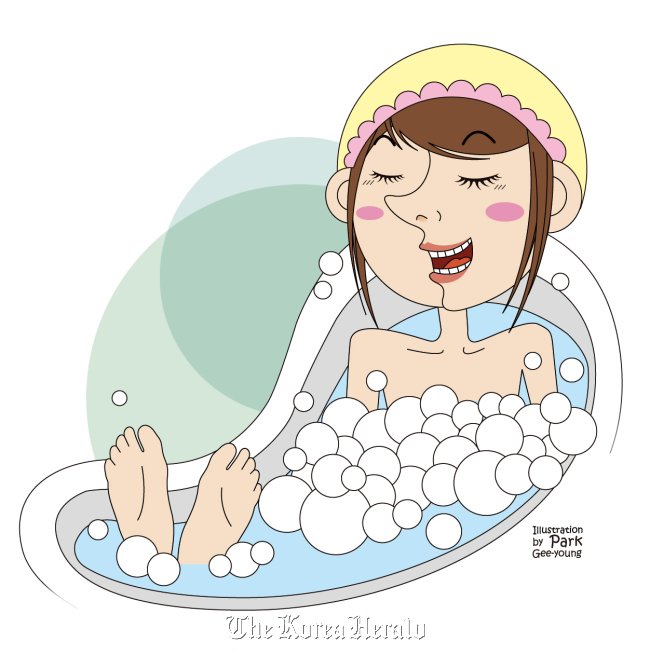With the start of the winter season, increasing numbers of people are complaining of itchy and dry skin. The itchiness and dryness of skin in winter is associated with the cold weather. In countries such as Korea, where there are continental climates and continued dry weather, such skin conditions are quite common. It is more common in those aged 40 years and over, with the symptoms most prominent in the outer surfaces of the arms and the legs. The dry and itchy symptoms can progress to dry eczema, so it should be managed appropriately.
Before the 1970s, people only went to the public baths once a week in the winter. With the abundant supply of apartments, hot water is now available 24 hours a day and some people have baths once to twice daily. Some people still continue with their old habits of going to the public bath once a week, along with their daily baths for a “proper bath.” However, such a practice can lead to increased skin trauma, causing itchiness and dryness, which can in turn lead to eczema symptoms.

The stratum corneum layer covers the skin, which is only 10 micrometers thick. This layer plays an important role in preventing the loss of moisture from the skin. Excessive use of soaps and scrubbing the skin can cause the destruction of this skin layer, causing increased moisture loss and skin symptoms explained above. When the skin stratum corneum layer is destroyed, it can take between one to two weeks to recover. If you have scrubbed your skin excessively, you should take care to look after your skin for the next 1-2 weeks and be careful when taking baths. Elderly people are more likely to develop dry skin. The outer surfaces of the limbs are more prone to develop dry eczema, so they shouldn’t be scrubbed.
In the winter, you should adjust the frequency, timing, and method of bathing from summer habits. The frequency should be limited to 2-3 times per week, and you should also reduce your bath times to 15 minutes each. Middle-aged men tend to enjoy hot baths or saunas daily to recover from their fatigue, but this will lead to damaging the protective skin layer thus causing skin itchiness and skin aging. You should also use lukewarm water, rather than hot water, to cleanse your face, followed by a cold-water rinse to prevent skin aging.
You should also avoid using coarse bathing towels, or ordinary towels with soap to scrub your skin. Instead, use gentle soaps to lather with your hands and apply to your skin as if applying skin lotion. Focus on cleaning areas that can get sweaty, such as the armpits, groin, and the area below the breasts. You may skip the other outer areas of the arms and legs if they aren’t dirty. It is advised to use gentle acidic soap with moisturizing properties. Avoid using soaps that contain deodorants or antibacterial agents. When drying your skin, do not rub your skin with a dry towel. Instead, pat the skin gently to dry. Apply moisturizer all over your body. It is best to do this right after having a bath, in the bathroom when the environment is still moist. Avoid excessively hot temperatures of bathing water, and it is not advised to take long baths.
 |
Lee Joo-heung |
By Lee Joo-heung
The author is a doctor of the Department of Dermatology at Samsung Medical Center and a professor of Sungkyunkwan University School of Medicine. ― Ed.








![[Today’s K-pop] Blackpink’s Jennie, Lisa invited to Coachella as solo acts](http://res.heraldm.com/phpwas/restmb_idxmake.php?idx=644&simg=/content/image/2024/11/21/20241121050099_0.jpg)
